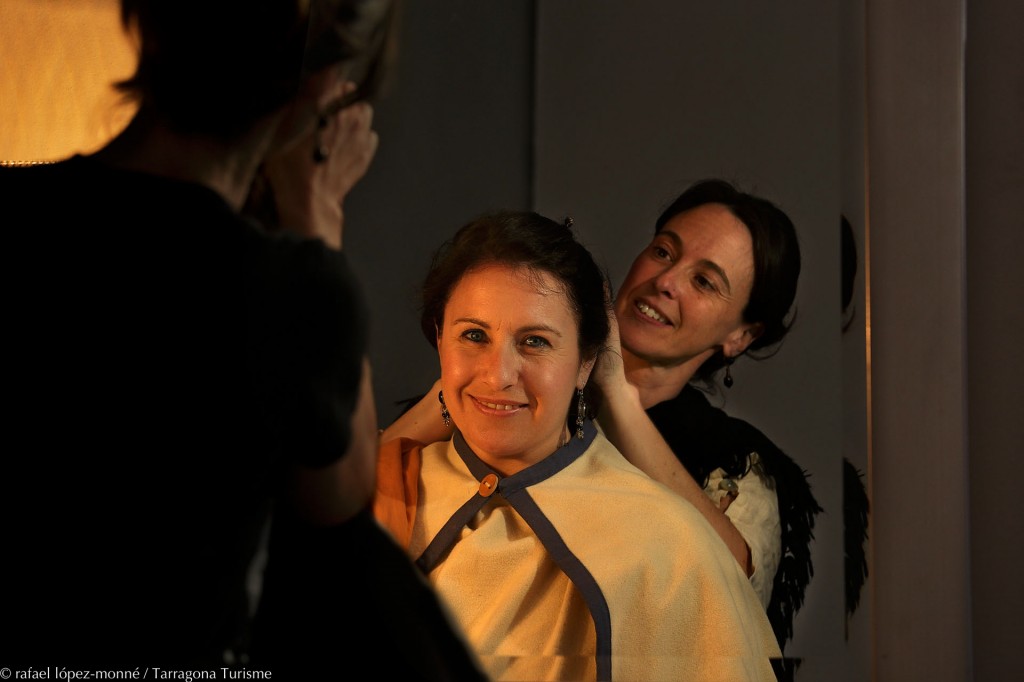Maximum tension in Technicolor. Peter Ustinov rises up challenging the crowd at the Rome Circus’ stand, and exhibits, cruelly, his thumb facing down. Millions of spectators around the world have come to understand that Nero, the mentally disturbed emperor at Quo Vadis?, has given the order to execute the film goodies. The truth is, however, that 2,000 years ago everyone would have looked quite baffled: the thumb gesture is a modern invention that Hollywood has universalized. At least though, the thousands of spectators that, by now, have been able to attend as public to the Tarraco Viva’s gladiators demonstrations, won’t look as ridiculous. The festival, which gathers more than 450 historical reconstruction events, mobilises both the whole city of Tarragona, proud of its past, and thousands of people committed to knowledge dissemination; such as archaeologist Reis Fabregat, for example, for whom this festival does not just last for 10 days, as official guidelines suggest, but for a whole year full of preparations.
There are a lot of things connecting Reis Fabregat, Loli Ynguanzo and Isabel Peña, the three partners behind Nemesis, archaeological services firm. One of the main ones, is Tarraco Viva, a festival they are cooperating with since its first edition (1999), producing historical reconstruction activities. “We spend most part of the year getting ready for it. We search for ideas, historical events that need researching in order to be rigorously performed, and we manufacture both materials and costumes needed. We learn and make learn, and we feel rewarded when we get the feeling there’s interest around what we try to transmit. All of this really motivate us as researchers”, explains Reis. Disseminating knowledge in an attractive and comprehensive way to the public is one of the toughest and most important challenges of today’s erudition, and upon this necessity, many historical reconstruction festivals have been born, such as Tarraco Viva, which has become one of the largest in Europe in its setting with more than 15 editions.
In such uncertain times, like the one we are living, History’s circulation can contribute on approaching problems. “Knowing about the past is a collective necessity. History is a reflection of who we are”, states Reis while sipping from her early coffee cup in ‘Plaça del Fòrum’. Nemesis is taking part in five new productions this year, such as a Clodius’ judgement recreation –Julius Caesar’s enemy who was accused of having entered the Temple of Vestal–, the dictator’s assassinate –Festival’s closure show–, or a ceremonial near Altafulla’s beach in honour of Isis. “Military demonstrations are very important in the Re-enactment (historical reconstruction). Tarraco Viva has not renounced this point of view, but is willing to explain so much more, several aspects of life 2,000 years ago, including gastronomy, games or music that our ancestors used to love”, she explains.
Knowledge’s transmission can become, as proved in Tarragona, both a channel of community involvement and a major cultural product, able of providing an area declared a World Heritage site by the Unesco with a value added, while drawing new visitors to the city. However, the most important thing –underlines Reis– is for the festival to thank most part of its success to a new point of view when coming up with new ideas, and to being as open-minded as possible towards new or future possible theorizations of the very same historical facts. The actual city’s character is at stake. Founded over two millenniums ago, Tarragona itself is a mosaic of infinite pieces, fragments of an incomplete codex opened to multiple interpretations.
Text: Oriol Margalef
Photography: Rafael López-Monné




